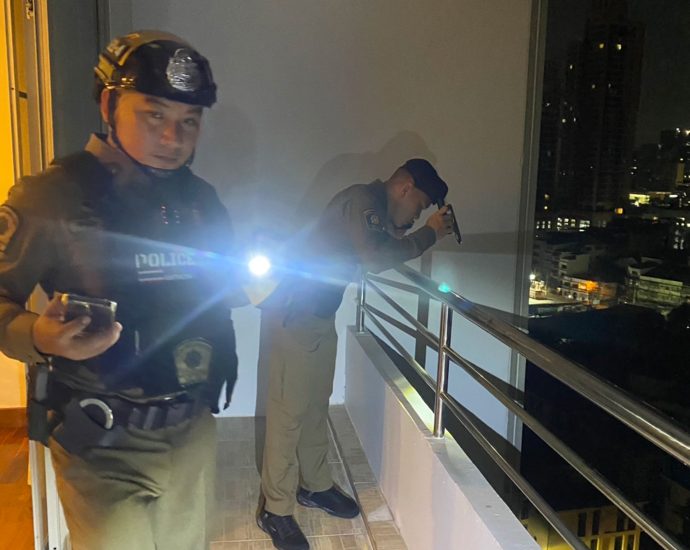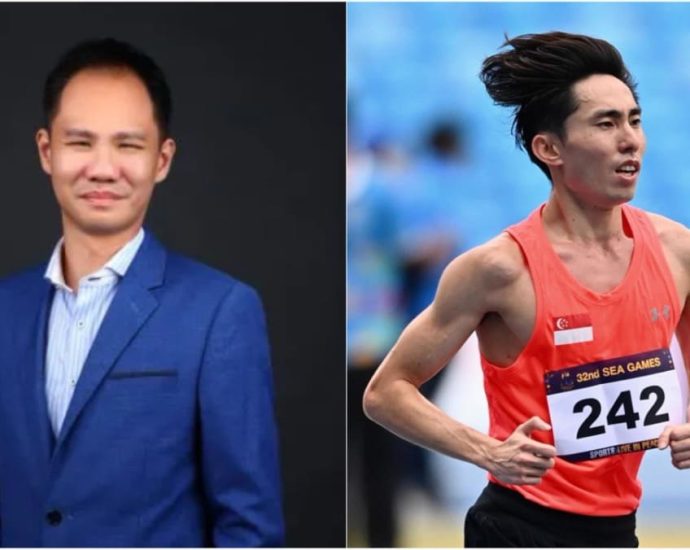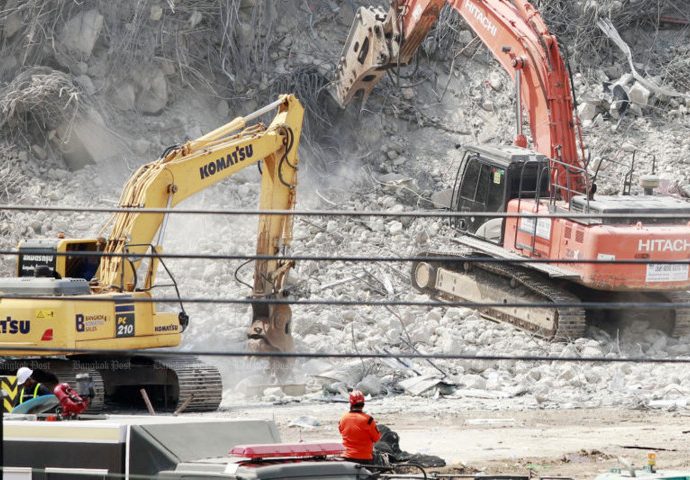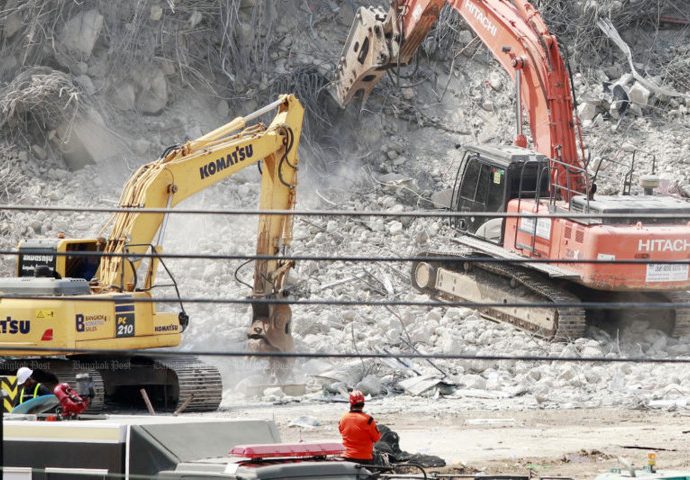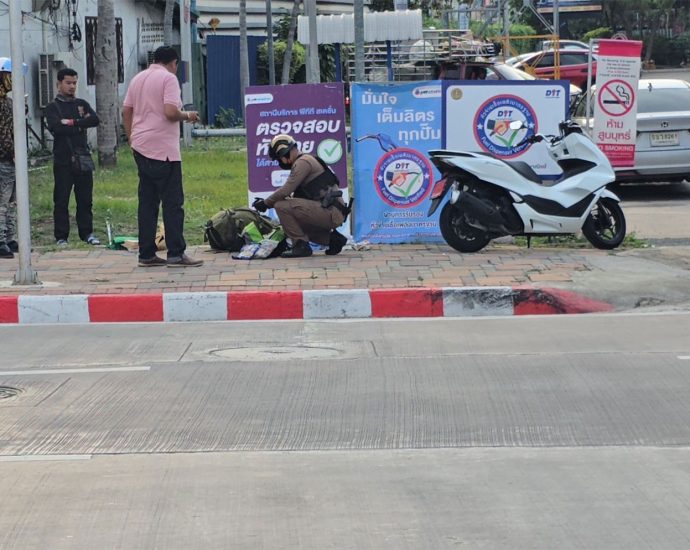In case a future Fed withholds needed bailout: a dollar coalition – Asia Times
In the event of dysfunction in dollar funding markets, the Federal Reserve can supply liquidity through standing central bank swaps. This column considers a scenario in which the Fed declines to extend such credit. It argues that 14 major central banks hold roughly $1.9 trillion in US safe assets. They could form a dollar coalition of the willing by pooling their dollar holdings and swapping them when needed. An inferior international lender of last resort beats no international lender of last resort.
On 16 April 2025, Federal Reserve Chair Jay Powell (2025) assured Professor Raghu Rajan that the Fed stands ready to supply dollar liquidity through standing central bank swaps. 1 When needed, the Fed can lead international last resort lending of dollars by extending hundreds of billions of its credit to partner central banks that in turn lend to their banks against collateral. Powell stressed that in doing so, the Fed ensures the transmission of its own policy when global dollar funding markets dry up. He cited the example of a foreign bank funding a security backed by US household debts (Reis and Bahaj 2018).
In 2008 and 2020, the amounts that the Fed swapped were not small, but offshore dollar funding – both on- and off-balance-sheet – is measured in the tens of trillions of dollars. Thus, with pennies on the dollar lent and repaid with interest, the Fed and co-operating central banks calmed dollar panics.
In the light of events in early 2025, this column considers the unlikely possibility that the Fed does not take the lead in international dollar lending of last resort in the event of dysfunction in dollar funding markets. What if some future Fed leadership were to decline to extend its credit through central bank swaps, taking the view that they “just hate bailing out Europe again,” in the unguarded phrase of the US Vice President (Goldberg 2025)? Or to condition swaps on bilateral political considerations?

This scenario is worth exploring even if one deems it very unlikely. A new Fed Board leadership would have to persuade the Federal Open Market Committee (FOMC) to reverse the policy just affirmed by Chair Powell. By law, the FOMC controls Fed open market operations, including the central bank swaps. 2
A glance at the recent additions to the current FOMC lineup suggests that it would not readily agree to withhold standing central bank swaps for political reasons. On 21 April, the New York Fed appointed European Central Bank (ECB) operations veteran Anna Nordstrom to head its markets group, managing the FOMC’s $6.3 trillion System Open Market Account. Her crisis-tested predecessor, Lorie Logan, has headed the Dallas Fed since 2022. 3 Last year, another New York Fed veteran, Alberto Musalem, and a former Goldman Sachs global treasurer, Beth Hammack, became the heads of the St Louis and Cleveland Feds, respectively. By the wisdom of the Congressional framers of the Federal Reserve Act, none is a presidential appointee. 4
That said, after trans-Atlantic differences surfaced over NATO, Ukraine and trade in March 2025 5 but even before the so-called reciprocal tariff announcement in early April, the reliability of the Fed as a source of dollar swaps came into question (Smart 2025). On March 20, a think tank report to the European Parliament considered a scenario of politicized “recourse to the dollar swap lines” (Tudoir et al. 2025). More telling was a Reuters story on the same day, widely sourced by a large team of writers, that reported that European central bankers were discussing how to make do without the Fed swaps. 6 Citing the Reuters story, Deutsche Bank’s foreign exchange strategist George Saravelos (2025) called this a “nuclear button.” 7
This scenario takes us to the Kindleberger Trap, the risk that a fading world power lacks the ability, but the ascendant power lacks the will, to provide the world with vital public goods — such as stable international money. In 1931, the Bank of England (BoE) was not able, but the Fed was not willing, to serve as lender of last resort to Austria. As a result, the crisis rolled on to Germany, Britain and ultimately the US. The Kindleberger Trap caught the “world in depression,” as Charles Kindleberger (1973) titled his seminal work. 8 Nowadays, it is not, as Joseph Nye (2017) imagined, that the Fed is unable to play lender of last resort and the People’s Bank of China is unwilling.
Instead, the hazard to the world economy now is that:
- 1. The Fed is able to lead a dollar lender of last resort operation, but
- 2. A future Fed may not be willing to do so, and
- 3. No one else is able to do so.
This column proposes a work-around:
- 4. A coalition of central banks can pool dollars to lend as a last resort.
Central banks without access to the Fed could form a dollar coalition of the willing.9 The 14 central banks that had standing and temporary Fed swap lines in 2008 and 2020 span dollar funding markets to a remarkable extent, which is not generally recognized (Ito et al. 2021). Among them they cover about three-fourths of offshore dollar liabilities of non-US headquartered banks and about five-sixths of global turnover against the dollar in the foreign exchange swap market (Figures 1 and 2 from McCauley 2024).
Figure 1 Dollar liabilities of banks headquartered outside the US


Note: 1 Cross-border and local liabilities in all instruments vis-à-vis all counterparty countries. Excludes intragroup positions but includes liabilities to other (unaffiliated) banks. From end-2015, includes positions reported by China and Russia (the latter up to end-2021).
Sources: BIS consolidated banking statistics; BIS locational banking statistics; author’s calculations.
Figure 2 Coverage of dollar foreign exchange swap turnover by Fed central bank swaps in 2007-2022


Note: Big 5: European Central Bank, Bank of Japan, Bank of England, Bank of Canada, and Swiss National Bank, advanced economy (AE) 5: Reserve Bank of Australia, Riksbank, Norges Bank, Danmarks Nationalbank, Reserve Bank of New Zealand; emerging market (EM) 4: Monetary Authority of Singapore, Banco de Mexico, Bank of Korea, and Central Bank of Brazil.
Source: BIS Triennial Central Bank Survey of foreign exchange of 2007, 2010, 2013, 2016, 2019, 2022, author’s estimates for Danish krone, author’s calculations.
A key fact is their collective firepower: The 14 central banks hold lots of dollars. Their collective holdings of US safe assets amounted to an estimated $1.9 trillion at the end of 2021. 10 The 14 central banks cannot, like the Fed, create dollars without limit, but they could pool their holdings and swap them when needed.
There is ample precedent for central banks to lend each other international money that is not of their own creation. In the 19th century, precious metal loans did not lack a geopolitical dimension but could not be unlimited.
A legendary story tells how the Silver Train (Silberzug) chugged from Vienna to Hamburg in 1857. Agreeing to a call for help on 8 December, the Bank of Austria loaded a train with almost ten million ounces of silver. 11 It arrived on 12 December “in highly visible fashion” (Deutsche Boerse 2025, Roberds and Velde 2014, p 45) in time to prevent the impending failure of most of Hamburg’s banks and to allow ship captains to unload their cargoes with some hope of getting paid (Aliber et al. 2023, pp 294-295). The Bank of Prussia evidently regretted having joined London and Paris in turning Hamburg down, before Vienna said yes – and having thus “missed an opportunity.” 12
During the 1890 Baring Crisis, it took the Banque de France about a day to send 707,547 ounces of gold, worth £3 million, from Paris to London by wagon, train, and ship. 13 The crates of gold “supposedly” recrossed the channel unopened (Flandreau 1997) 14 but, in any case, signaled that sterling was as good as gold. The BoE Governor “and the City were uneasy about asking the French and the Russians for help…. Suppose for some political-financial reason they had been unwilling to oblige?” 15 These metallic last resort loans calmed panics even though neither drew on alchemy to extend unlimited support.
In the modern era, central bank mutual support has mixed money creation and dollar reserve use in varying proportions. In the record-breaking $3 billion support for the Bank of England in November 1964, the US, German, French and Swiss central banks pledged 59% in their own currencies and the other G-10 members and the Bank for International Settlements (BIS) pledged 41% in dollars (Schenk 2010, p 276). The June 1976 record-breaking $5.3 billion credit to the Bank of England reversed the proportions, as apparently only the Fed pledged its own currency for 38% and the other G10 members and the BIS stumped up dollars for their 62% share. 16
Thus, in an historical perspective, the 2008 pattern of the Fed, the ECB and the Swiss National Bank (SNB), each swapping its own currency, stands out as an exception. Much of last resort lending by central banks to each other has involved lending their own reserves rather than freshly created money.
With this perspective, the $1.9 trillion possible pool is big money. It’s triple the previous maximum drawing on the Fed swap lines in 2008 ($598 billion) and quadruple the peak 2020 usage ($449 billion) (Choi et al. 2022). The coalition would signal an independent judgement of the nature of the crisis, backed by money, like a Fed swap, as opposed to each central bank in need drawing only on its own resources. And if the Fed could trust the 14 central banks, how could they not trust each other?
Where the pool could fall short would be in signaling that there is plenty more where this came from. If the $1.9 trillion were deemed too small, coalition members could ex ante raise the dollar share of their reserves, reversing diversification into Canadian and Australian dollars, renminbi, and other currencies (Arslanalp et al. 2022). Or highly rated countries could borrow dollars ex ante to add to reserves at low cost. 17
Leadership could arise among the Fed’s standing swap partners – the ECB, Bank of Japan (BoJ), SNB, BoE, and Bank of Canada. The ECB and BoJ were the largest users of the Fed swap lines in 2008 and 2020, respectively. During the 2023 run on Credit Suisse, the SNB acquired unique experience in tapping the New York Fed for $60 billion against US Treasury collateral under the FIMA (foreign and international monetary authorities) repo facility (Martin 2024).
The coalition could enlist the BIS for technical support as an agent as European central banks did in 1973-95 (ECB 2025). Or the BIS could serve as intermediary, as it did when the New York Fed lent dollars through the BIS to offshore banks in the 1960s to prevent funding crunches (McCauley and Schenk 2020).
Using reserves rather than money creation to fund swaps has a snag: the $1.9 trillion is invested, and a crisis calls for electronic cash. If the Fed were to deny swaps, would it continue to provide same-day FIMA funding against Treasuries held in custody?
If it did, the coalition could arrange to access hundreds of billions of dollars in same-day funds to meet a panic. If the Fed did not, then it would end up providing ad hoc funding. Here is why.
Without the FIMA backstop, heavy central bank sales of US Treasuries would rock the US bond market. Such selling could prod the Fed into the market as buyer of last resort — as in March 2020, before the FIMA repo was introduced.
Without the FIMA backstop, central banks might seek to repo hundreds of billions in Treasuries for cash in the market. Such funding could well prod the Fed to cap market repo rates. After all, the recent benchmark rate shift from dollar LIBOR to repo-based SOFR means that the Fed’s own domestic monetary transmission requires well-behaved repo rates.
One way or another, the coalition would need to work with the Fed to manage any “dash for cash” (Barone et al. 2022).
Limits excite. It may well be, as Eurosystem sources grimly noted to Reuters, that “there is no good substitute to the Fed” (Martinuzzi et al. 2025). Even a large pool of dollar reserves would not stack up to “whatever it takes” Fed swaps, as demonstrated neatly in Korea during the 2008 Global Crisis (Baba and Shim 2014).
Nonetheless, a dollar coalition of the willing could pool trillions of dollars to backstop global dollar funding with no more than self-interested Fed help. An inferior lender of last resort beats no lender of last resort.
Robert N McCauley is a nonresident senior fellow of the Global Development Policy Center, Boston University, and an associate member of the Faculty of History, University Of Oxford.
This article was originally published by VoxEU, portal of the Center for European Policy Research. It is republished with permission.
References
Aliber, R, C Kindleberger and R McCauley (2023), Manias, panics and crashes, 8th edition, Cham, Switzerland: Palgrave Macmillan.
Alito, S (2024), “Dissent to Consumer Financial Protection Bureau et al. v. Community Financial Services Association of America, Ltd., et al.”, Supreme Court of the United States, argued 3 October 2023 — Decided 16 May 2024.
Allison, G (2014), Destined for war, Boston: Houghton Mifflin Harcourt.
Arslanalp, S, B Eichengreen and C Simpson-Bell (2022), “The stealth erosion of dollar dominance and the rise of nontraditional reserve currencies”, Journal of International Economics 138, 103656.
Baba, N and I Shim (2014), “Dislocations in the won-dollar swap markets during the crisis of 2007-2009”, International Journal of Finance and Economics 19(4): 279-302.
Barone, J, A Copeland, C Kavoussi, F M Keane and S Searls (2022), “The global dash for cash: why sovereign bond market functioning varied across jurisdictions in March 2020”, Federal Reserve Bank of New York Staff Reports, no 110, March.
Bordo, M D and A Schwartz (1999), “Under what circumstances, past and present, have international rescues of countries in financial distress been successful?”, Journal of International Money and Finance 18(4): 683-708.
Chinn, M and J Frankel (2007), “Will the euro eventually surpass the dollar as leading international reserve currency?”, in R Clarida (ed.), G7 current account imbalances: sustainability and adjustment, Chicago: University of Chicago Press.
Chinn, M, J Frankel and H Ito (2024), “The dollar versus the euro as international reserve currencies”, Journal of International Money and Finance 146, 103123.
Choi, M, L Goldberg, R Lerman and F Ravazzolo (2022), “The Fed’s central bank swap lines and FIMA Repo Facility”, Federal Reserve Bank of New York Economic Policy Review 28(1).
Deutsche Boerse (2025), “Die Weltwirtschaftskrise 1857”, accessed 24 April 2025.
European Central Bank (2025), “The European Monetary Cooperation Fund (1973-93)”.
Flandreau, M (1997), “Central bank cooperation in historical perspective: a skeptical view”, Economic History Review 50(4): 735-763.
Foulis, P (2015), “The sticky superpower”, Economist special report, 1 October.
Garcia-Herrero, A (2024), “BRICS is becoming a more solid construction”, Bruegel First Glance, 29 October.
Gislén, M, I Hansson and O Melander (2021), “Dollar liquidity from the Federal Reserve to other central banks”, Sverigis Riksbank Economic Review 1: 27-51.
Goldberg, J (2025), “The Trump administration accidentally texted me its war plans”, Atlantic, 24 March.
Hauser, A and L Logan (2022), “Market dysfunction and central bank tools: insights from a Markets Committee Working Group chaired by Andrew Hauser (Bank of England) and Lorie Logan (Federal Reserve Bank of New York)”, Markets Committee Papers, Basel: BIS, 11 May.
Ito, H, G K Pasricha and J Aizenman (2021), “Central bank swaps in the age of Covid-19”, VoxEU.org, 8 April.
Kamin, S and M Sobel (2024), “Dollar dominance is here to stay for the foreseeable future–the real issue for the global economy is how and why”, AEI Economics Working Paper 2024-02, January.
Kamin, S and M Sobel (2025), “Trump is undermining the dollar’s global financing and reserve role”, Official Monetary and Financial Institutions Forum, 10 March.
Kindleberger, C (1973), World in depression, Berkeley: University of California Press.
Martin, A (2024), “Presentation to ‘Policy session 3: The US dollar in the international financial system’”, Federal Reserve Bank of Atlanta Financial Markets Conference, 21 May.
Martinuzzi, E, J Aguado, B Koranyi, S Spezzati and J O’Donnel (2025), “Exclusive: some European officials weigh if they can rely on Fed for dollars under Trump”, Reuters, 24 March.
McCauley, R (2019), “Safe assets: made not just born”, BIS Working Paper no 769, February.
McCauley, R (2024), “The offshore dollar and US policy”, Federal Reserve Bank of Atlanta Policy Hub, no 2-2024, May.
McCauley, R and C Schenk (2020), “Central bank swaps then and now: swaps and dollar liquidity in the 1960s”, BIS Working Papers no 851, April.
Mehrling, P (2022), Money and empire, Cambridge: Cambridge University Press.
Menand, L (2021), “The Federal Reserve and the 2020 economic and financial crisis”, Stanford Journal of Law, Business & Finance 295: 101-166.
Menand, L (2022), The Fed unbound, New York: Columbia Global Reports.
Nogueira Batista, P (2023), “BRICS financial and monetary initiatives – the New Development Bank, the Contingent Reserve Arrangement, and a possible new currency”, Valdai Discussion Club Opinions, 3 October.
Nye, J (2017), “The Kindleberger trap”, Project Syndicate, 9 January.
Perry, A R (2020), “The Federal Reserve’s questionable legal basis for foreign central bank liquidity swaps”, Columbia Law Review 120(3): 729-767.
Powell, J (2025), “Fireside chat with Raghuram Rajam”, Economic Club of Chicago, 16 April.
Reis, R and S Bahaj (2018), “Central bank swap lines”, VoxEU.org, 25 September.
Roberds, W and F Velde (2014), “Early public banks”, Federal Reserve Bank of Chicago Working Paper no 2014-3, February.
Saravelos, G (2025), “A ‘nuclear button’ for the dollar”, Deutsche Bank FX Research, 27 March.
Schenk, C (2010), The decline of sterling, Cambridge: Cambridge University Press.
Smart, C (2025), “Will Trump use the Federal Reserve for leverage, too?”, Foreign Policy, 14 March.
Todoir, S, S Vallee, O Reiter and R Stehrer (2025), “Europe’s policy options in the face of Trump’s global economic reordering”, Monetary Dialogue Papers, Economic Governance and EMU Scrutiny Unit, Directorate-General for Economy, Transformation and Industry, for the Committee on Economic and Monetary Affairs, European Parliament, March.
Weiss, C (2022), “Geopolitics and the U.S. dollar’s future as a reserve currency”, Board of Governors International Finance Discussion Papers, no 1359, October.
Footnotes
- Powell (2025), https://www.youtube.com/watch?v=1o_9kO0zZQg, at minute 35:50. Rajan’s question was poignant, since he had called attention to the Fed’s not extending a swap to the Reserve Bank of India when he was the Governor in 2013.
- The Fed claims the authority of Section 14 of the Federal Reserve Act to do swaps as open market operations. Perry (2000) and Menand (2021, 2022) have questioned this use of the Section 14 authority. To a non-lawyer, that the Congress has received 60 years of reports on the Fed’s foreign exchange operations, including the swaps, implies something like consent. But Menand (2021, p 108) quotes the Supreme Court in a different context: “[u]nlawful acts, performed long enough and with sufficient vigor, are never enough to amend the law.” Perry (2020) predicted in early 2020: “If another crisis were to occur, public outrage might center on certain, legally dubious Fed activities, such as these swap lines.” In the event, there was little discussion of the 2020 swaps. Perry’s and Menand’s proposal that swaps be done under the Fed’s 13.3 authority would make the swaps subject to a Treasury veto, as required by the 2010 Dodd Frank Act’s amendment of 13.3.
- See Hauser and Logan (2022).
- It is not certain whether the president has the legal authority to fire the Chair of the Federal Reserve Board without cause. Even if so, the former chair could remain as governor and be voted chair of the FOMC. In the 16 April interview, Chair Powell (2025) said that the Fed was carefully following the case of two labour board members fired by the president. The legal position of the Fed is different from many independent agencies in that the Congress has delegated to it monetary power that the Constitution clearly gives to the Congress. Justice Samuel Alito (2024), although a proponent of the unitary Executive, in a dissent against a ruling that the Consumer Financial Protection Bureau can be funded by the Fed, set out the unique status of the Fed: “The Government also suggested that the Federal Reserve Board is a close historical analog for the CFPB…But that setup should not be seen as a model for other Government bodies. The [Fed] Board, which is funded by the earnings of the Federal Reserve Banks…is a unique institution with a unique historical background. It includes the creation and demise of the First and Second Banks of the United States, as well as the string of financial panics (in 1873, 1893, and 1907) that were widely attributed to the country’s lack of a national bank…. The structure adopted in the Federal Reserve Act of 1913 represented an intensely-bargained compromise between two insistent and influential camps: those who wanted a largely private system, and those who favored a Government-controlled national bank. … For Appropriations Clause purposes, the funding of the Federal Reserve Board should be regarded as a special arrangement sanctioned by history.”
- Steve Kamin and Mark Sobel (2025), formerly senior officials of the Fed Board and US Treasury, respectively, wrote on 10 March that “Trump is undermining the dollar’s global financing and reserve role…The world is openly questioning whether the US is a reliable partner…” Compare to the authors’ “Dollar dominance is here to stay…” in January 2024.
- Martinuzzi et al. (2025): “Some European central banking and supervisory officials are questioning whether they can still rely on the U.S. Federal Reserve to provide dollar funding in times of market stress, six [!] people familiar with the matter said, casting some doubt over what has been a bedrock of financial stability. The sources told Reuters they consider it highly unlikely the Fed would not honour its funding backstops — and the U.S. central bank itself has given no signals to suggest that. But the European officials have held informal discussions about this possibility — which Reuters is reporting for the first time — because their trust in the United States government has been shaken by some of the Trump administration’s policies.”
- Saravelos (2025): “Ultimately, a withdrawal of the Fed as the international lender of last resort is equivalent to a suspension of the dollar’s role as the safest of global currencies. Doubts about a commitment from the Fed to maintain dollar liquidity — especially against [sic] major allies — would accelerate efforts by other countries to reduce their dependence on the US financial system. It would ultimately lead to lower foreign ownership of US assets and a broad-based weakening of the dollar’s role in the global financial system.” This is a very different scenario of dollar decline from that of Menzie Chinn and Jeffrey Frankel (2007), who imagined a shift from the dollar based on high US inflation. An update by Chinn et al. (2024) finds little role for inflation.
- The Kindleberger Trap, one of a vacuum of power, must be distinguished from the Thucydides Trap of Allison (2014), in which the dominant power fears the rising power and goes to war. See Mehrling (2022) for a discussion of Kindleberger’s global public goods that the leader (or ‘hegemon’) needs to provide to supply global financial stability.
- Ten years ago, the Economist’s Patrick Foulis (2015) argued that those central banks that were not included in the Fed’s swaps could pool their dollar reserves and thereby insure each other against a sudden need for dollars. Then and now, the undisputed key dollar reserve holder in this negatively defined group is China. Already in 2015, the odd gathering – a case of life imitating an investment bank strategist’s conceit — of Brazil, Russia, India, China, and South Africa (BRICS) – started down the road to a swap facility. They have not gotten very far. In the event, “BRICS is ending up as a hub and spoke model with China as the centre” (Garcia-Herrero 2024), but the swap arrangement is according to an insider ‘small’ and ‘frozen’ (Nogueira Batista 2023). This leaves China’s network of bilateral swaps as the real game, which Argentina has demonstrated can be tapped for dollars in extremis.
- The author thanks Colin Weiss (2022) for his estimates based on publicly available data, which are doubtless closer to the mark for aggregates like the 14 than for particular countries. For example, Weiss’s procedure overstates known UK dollar reserves, but understates known Swiss dollar reserves. The 14’s total foreign exchange reserves at the end of 2024 were about double the $1.9 trillion. Note that Weiss is working only with dollar reserves held in the US. McCauley (2019) estimates that $1 trillion in dollar reserves were held offshore in 2017.
- Oddly, the Bank of Austria was in a position to help owing to earlier fiscal dominance: “After years of unbalanced budgets and seigniorage finance, Austria was in a regime of inconvertible paper and fluctuating exchange rates, which partly insulated it from shocks on convertible countries: the specie reserve of the Bank of Austria was thus useless and could be profitably [at 6% interest] used in foreign support…” writes Flandreau (1997, p 750).
- The British consul in Hamburg noted that it was fortunate for Britain that Austria and not Prussia had brought the aid since there would then be no pressure on Hamburg to join the Zollverein.” Note that the borders of the German economy were at issue again in 1931, when the French demanded that Austria renounce a customs union with Germany as the price of another BIS-arranged credit from 11 central banks (Aliber et al. 2023, p 302).
- It must have required five separate loadings (two in Paris, one in Calais, one in Dover, and one in London). Martin (2024) notes that central bank swaps are sometimes affected on the same day but often are T+1.
- Flandreau’s general scepticism about central bank cooperation as opposed to profitable central banking sits uneasily with his report on the parliamentary debate on the 1890 gold loan: “On the French side, the operation resulted in hostile interpellation in the chamber of deputies. But the minister of finance replied that such help had been necessary to prevent harmful repercussions for France of a deeper crisis in London.” Flandreau (1997, p 761) concludes, ”In all cases, international help had not resulted from a bilateral realization of common interests. In its most favourable form, it was a consequence of the unilateral perception of the possible gains associated with unilateral support.” In 2025, such enlightened self-interest would be most welcome. See also Bordo and Schwartz (1999), who rate the 1890 help by the Banque de France to the Bank of England a success.
- Aliber et al. (2023, p 296), citing Clapham, the historian of the Bank of England.
- Schenk (2010, p 373-374) notes that drawings on the swap paid interest at the US Treasury bill rate, so the swap was presumably all in dollars. Dollar reserves had grown significantly since 1964.
- Or even at a profit. In the Global Crisis, the SNB sold dollar paper to fund its rescue of UBS. Where central banks do not have such power to borrow dollars, the government debt manager could borrow dollars and deposit them with the central bank; for top-rated sovereigns the cost of such borrowing net of the return on the reserves is close to zero. In Sweden the Swedish Debt Office borrowed dollars and euros after the GFC and the net cost given the returns earned by the Riksbank was close to zero. See Gislén et al. (2021, p 30) on ex ante versus ex post dollar borrowing.


